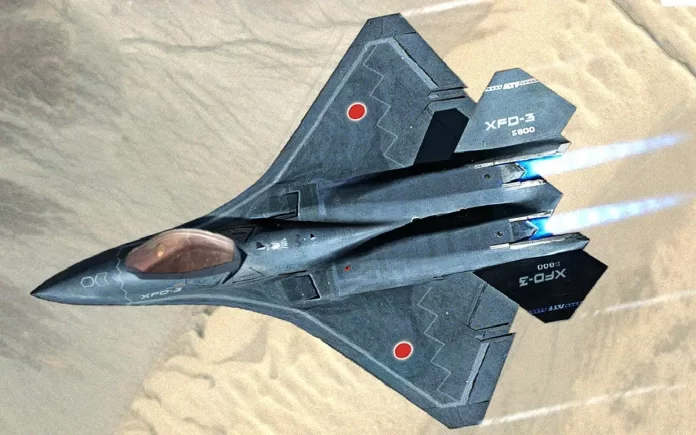Tokyo: Japan’s Cabinet approved a landmark proposal on Tuesday to sell prospective next-generation fighter jets, marking a significant departure from the nation’s postwar pacifist principles. This move allows Japan to sell fighter jets developed in collaboration with Britain and Italy to other nations.
This decision, aimed at bolstering Japan’s defense capabilities and advancing its position in international security, is set to bolster Japan’s involvement in the joint fighter aircraft project.
In a major policy shift, Japan’s Cabinet also greenlit changes to the country’s technology and arms transfer policies, permitting the sale of jointly developed lethal weapons to nations beyond its partnership circle.
Read More: Poland’s Stern Response: Defiance Against Russian Missile Violation
Traditionally bound by its pacifist constitution, Japan has refrained from arms sales. However, amidst escalating regional tensions, particularly with China, Japan has moved swiftly to relax these regulations.
The decision to allow the sale of jointly developed lethal weapons, including fighter jets, marks a significant shift in Japan’s defense posture and export policies.
The aging fleet of F-2 fighters, alongside the Eurofighter Typhoons used by Italy and Britain, will be replaced by a modern fighter jet developed through collaboration with Italy and the United Kingdom.
The joint project, known as the Global Combat Air Program (GCAP), positions Japan to acquire advanced capabilities necessary to navigate rising regional tensions, providing a technological advantage over adversaries like China and Russia.
Despite Japan’s historical commitment to pacifism, the decision underscores its evolving role in international security and defense cooperation.
Read More: Tragic Loss: Woman Among 5 Chinese Engineers Killed in Shangla Suicide Attack
Prime Minister Fumio Kishida’s government has faced criticism for its commitment to the fighter jet project without adequate public explanation or approval for such a significant policy shift.
To address concerns, the government has restricted exports of jointly developed lethal weapons to the fighter jet and pledged not to authorize sales for active war use. Additionally, sales will be limited to the 15 countries with which Japan has defense partnership and equipment transfer agreements.
While public opinion remains divided on the plan, recent polls indicate varying degrees of support and opposition.
Japan’s move to export fighter jets represents a notable departure from its previous stance on arms sales. The government’s decision emphasizes the importance of international defense partnerships and highlights Japan’s willingness to play a more active role in global security.



